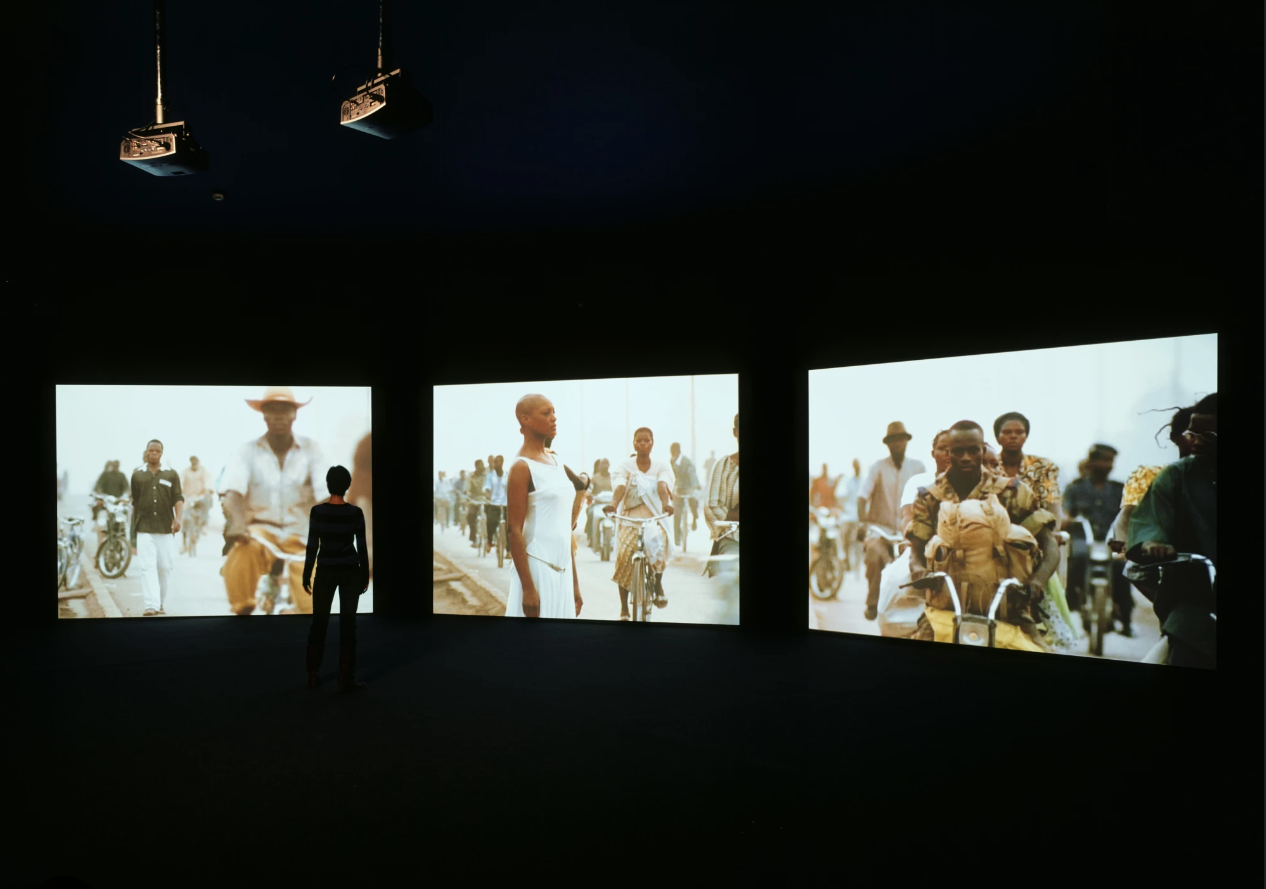Free and open to the public. Thursday to Sunday, 10AM—6PM.
150 Camp St, San Antonio, TX
Free and open to the public. Thursday to Sunday, 10AM—6PM.
150 Camp St, San Antonio, TX

Ruby City is pleased to present Isaac Julien: Fantôme Afrique.
The exhibition will be on view through July 30, 2023 and again September 8, 2023–April 2024. The installation will be closed July 30–September 7 during reinstallation of Ruby City’s permanent collection galleries.
In discussing his three-screen, 18-minute film installation, Julien describes Fantôme Afrique (2005) as “weav[ing] cinematic and architectural references through the rich imagery of urban Ouagadougou, the capital of Burkina Faso in West Africa and, with the Burkina Faso film festival, the center for cinema in Africa. The city center is contrasted with the arid rural space of Burkina Faso, and archival footage from early colonial expeditions and landmark moments in African history punctuate the film.”
Fantôme Afrique references the French colonial powers that forcibly shaped Burkina Faso and the country’s self-determined response in the aftermath of occupation. Among the boldest responses was Burkina Faso’s investment in film and film production, enabling the country to connect with an international audience and industry. Featured in the film are two figures, a female “witness,” and a male “trickster,” who variously appear in several different sites in Ouagadougou. Their travels throughout the city reveal its complex hybridity born out of these historic forces and present-day realities. Julien’s film positions Burkina Faso, like many African countries, as occupying an altogether new territory, one that is alternatively global and local, urban and rural as well as preindustrial and contemporary. The title of the work alludes to surrealist writer Michel Leiris’ 1934 book L’Afrique Fantôme which detailed his participation in a French state-sponsored anthropological expedition. His book blended personal details with anthropological observations revealing hypocrisies of colonialism and collective exotic fantasies about Africa.
Julien (b. 1960, London) is internationally known for his poetic, meditative multi-screen film installations and photographs which reflect his long-term study of film history and production. Using these mediums he often focuses on specific places and landscapes to present counter or unknown histories using a non-narrative style. With both lyrical and descriptive power, Julien’s works reveal the complexities of contemporary human experience along with the historical forces or events which continue to affect the present. Subjects as specific and broad as black and queer identities, diaspora, migration and the underlying effects of capitalist economic systems have been the focus of his films.